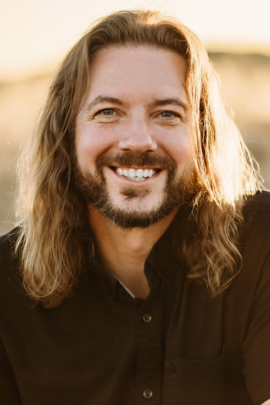About
I have chosen to devote my life work to helping men and women recover from addictive, compulsive, and self-medicating patterns in order to be free to live the abundant life Jesus invites us into. I offer expertise in working with all forms of addictions and compulsions including but not limited to: drugs/alcohol, sex, pornography, love, food, spending, gambling, video games, and codependency. Additionally, I work extensively with the interaction of addictions and mental health disorders such as depression, anxiety, ADHD. A majority of the time, if an individual struggles with one of these issues, they end up struggling with several. I address these concerns from a variety of angles including individual, family and group therapy.
My Goal as a Christian Counselor
My goal is to meet you in whatever you are struggling with and walk with you toward healing, hope, and health. I approach counseling from a client-centered strength-based perspective, tailoring my methods to your unique strengths and needs. I am educated and trained in a wide variety of therapeutic models and I will aim to integrate these in ways that uniquely relate to you.
I think of myself as a personal trainer: I will provide tools and resources that you can use to empower yourself as you cultivate health and freedom. Very often, I will work on goal setting and assign homework to hone the skills learned in therapy. I am an active counselor who will give you regular feedback and direction. I also enjoy using humor and having fun while working together.
As much as possible, it is my goal to provide brief solution-focused therapy to all my clients. I hope to help you get good at life, not at coming to therapy.
What I Offer in Christian Counseling
I believe sustainable, wholehearted change requires addressing all aspects of how God created you (biological, psychological, social, and spiritual).
Improving biological health involves healing and changing anything in your physical body that impacts your overall wellbeing, such as sleep, diet, exercise, biochemistry, physical pain, etc. You can love Jesus with your whole heart and have great healthy relationships and positive views of yourself but if you suffer from low levels of serotonin, chronic pain, or just stay up all night eating gummy worms and drinking Mountain Dew, it is going to make the rest of the healing process more challenging. We will work to help you correct unhealthy behaviors in these areas and build a solid biological foundation to support the rest of your personal healing and growth.
Improving psychological health involves acknowledging and changing unhealthy thought patterns and engaging undesirable emotions more effectively, as well as healing early attachment wounds and/or relational traumas experienced earlier in life. These core wounds are wired so deeply in your lower brain and nervous system that they are quite literally more felt in your body than consciously thought about in your mind. Behavioral changes alone are not likely to heal these deeper wounds that require more experiential rewiring.
Improving social health involves helping you relate to others in more meaningful ways. You will struggle to thrive as long as you are living in relational isolation, abuse, secrecy, incongruence, conflict, codependence, etc. It is imperative for you to learn to live in relationship with others in skillful and effective ways which requires cultivating a great deal of courage, willingness, vulnerability, empathy, attunement, responsibility, assertiveness, boundaries, and healthy communication.
Improving spiritual health involves deepening your belief and commitment to know and follow God. If you have a pulse, you have likely struggled with unpleasant feelings toward God such as fear, doubt, disbelief, anger/resentment, confusion, etc. Spoiler alert: it’s okay. In fact, I am convinced that these are gifts we experience to enjoy deeper intimacy with God. We grow through these spiritual struggles, not apart from them.
My Approach to Treating Addiction as an Intimacy Disorder
“The opposite of addiction is not sobriety; the opposite of addiction is connection.” ~ Yohan Hari
I approach addiction as a relational dis-ease or disconnection from ourselves, God, and others. Addiction is less of a problem to fix and more of a wound to heal. Too often addiction counseling focuses on fixing the negative behaviors of addiction rather than healing the intimacy wounds that drive the behaviors. Relational recovery is all about recovering and restoring our healthy connection with God, ourselves, and others. This starts with sobriety but doesn’t end there.




